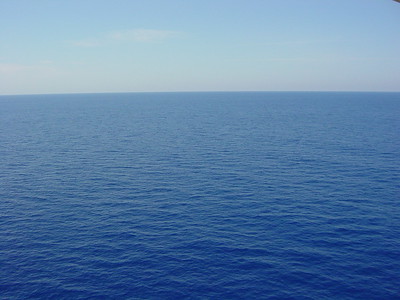November 21, 2023

Author——————————-
Shana Miller
Project Director, International Fisheries Conservation – The Ocean Foundation
We had high hopes for harvest strategies at the 2023 meeting of the International Commission for the Conservation of Atlantic Tunas (ICCAT), which just met for 8 days in Cairo, Egypt. Yet, when the gavel dropped yesterday, there was very little progress to show. Both management procedures (MPs) scheduled for adoption according to ICCAT’s own workplan, namely for North Atlantic swordfish and West Atlantic skipjack, were delayed until next year. The incremental steps planned for other species similarly ended in disappointment. The brightest outcome related to harvest strategies was a commitment to consider a management strategy evaluation (MSE) for blue sharks, adding two stocks to ICCAT’s harvest strategy list.
ICCAT started its swordfish MSE several years ago, building on a decade of scientific work on reference points. In 2023 alone, ICCAT convened 3 meetings for dialogue among scientists, managers and other stakeholders about management objectives, candidate management procedures, and other aspects of the MSE. The scientists had 4 formal meetings to advance the technical side of the MSE, in addition to nearly weekly informal meetings. Two draft proposals to adopt a final MP, one from Canada and another from the USA and European Union, were submitted to the meeting. But a late update to some fishing data – dating back to 2021 – required some modifications to the MSE, and this led to slight changes in CMP performance results. Those final results were not available until the first day of the annual meeting. This rattled some governments, making them nervous about adoption, even though the updated results had been reviewed by multiple experts without any red flags. The resulting discussion concluded with a rollover of the existing measure and a plan to review the MSE results more thoroughly next year alongside previously scheduled testing related to impacts on CMP performance of climate change and juvenile mortality. The experience highlights the need to carefully consider data lags in MSEs given ICCAT (and other fisheries organizations) still struggle to receive timely and accurate data from member governments.
The story for western skipjack was similar. ICCAT scientists had endorsed the MSE as complete and ready for MP adoption at their annual meeting in September. Decisionmakers had agreed to near-final management objectives at a meeting earlier in the year after adopting conceptual objectives last year. Brazil, who led the MSE work and is responsible for more than 90% of the catch, was poised to champion an MP measure for adoption. But a proposal never came. Again, a slight question about whether the science was watertight – a question which was not backed by any specific concerns – resulted in the MSE being sent back to the scientists for another year of work. What exactly they’re supposed to accomplish beyond the robust work they’ve already completed is unclear.
With an MP adopted for Atlantic bluefin tuna last year in one of ICCAT’s biggest successes ever, this year’s task was to adopt an exceptional circumstances protocol (ECP) to govern how to proceed should unforeseen and untested scenarios occur in the fishery. Five rounds of review led to a strong proposal being tabled at the meeting. Yet, minutes prior to adoption, a revised version appeared that allows not only decreases in catch limits but also explicitly enables increases under some circumstances. Exceptional circumstances are typically viewed as emergency situations that might require deviation from the MP before the next management cycle to protect a stock. A limit that is “too low” does not constitute an emergency, especially when considering that the quota for bluefin tuna in the eastern Atlantic and Mediterranean Sea is at its highest level ever. So, while an ECP was adopted to finalize the MP as fully specified, it could put more pressure on the scientists’ recommended response should exceptional circumstances be identified in the future.
Another disappointment was a failure to take incremental steps on the multispecies tropical tunas MSE for bigeye, yellowfin and eastern skipjack tunas, all stocks in urgent need of improved management. A U.S. proposal to start developing management objectives for the stocks failed to pass, despite all of the substantive text being bracketed for later completion. Further, the funding requested by ICCAT scientists to engage much-needed external MSE experts in the relatively complicated multispecies framework was approved but only at a greatly reduced level.
The silver lining for blue sharks will result in ICCAT scientists advising on the feasibility of conducting MSEs for the North and South Atlantic stocks. Their guidance is requested by 2025, finally putting an end date on a general request that has been included in each measure for the stocks since 2016. This should be an easy question to answer, since preliminary MSE work is already underway for blue sharks at ICCAT thanks to funding from the FAO Common Oceans project.
It was a tough meeting for harvest strategies, especially considering where things stood just a few weeks ago and despite the fact that this year did see the third running of the northern albacore MP, demonstrating the value of MP adoption for the governance of international fisheries. The northern albacore catch limit was increased by 25% to its highest level ever since the stock continues to grow. That should serve as motivation to replicate this success for ICCAT’s other priority stocks, but regrettably that wasn’t the case this year. Instead, ICCAT rolled these tasks over to next year’s already busy schedule. We hope everyone will learn the necessary lessons to ensure things stay on track moving forward. We look forward to providing a better update after ICCAT’s 2024 meeting.